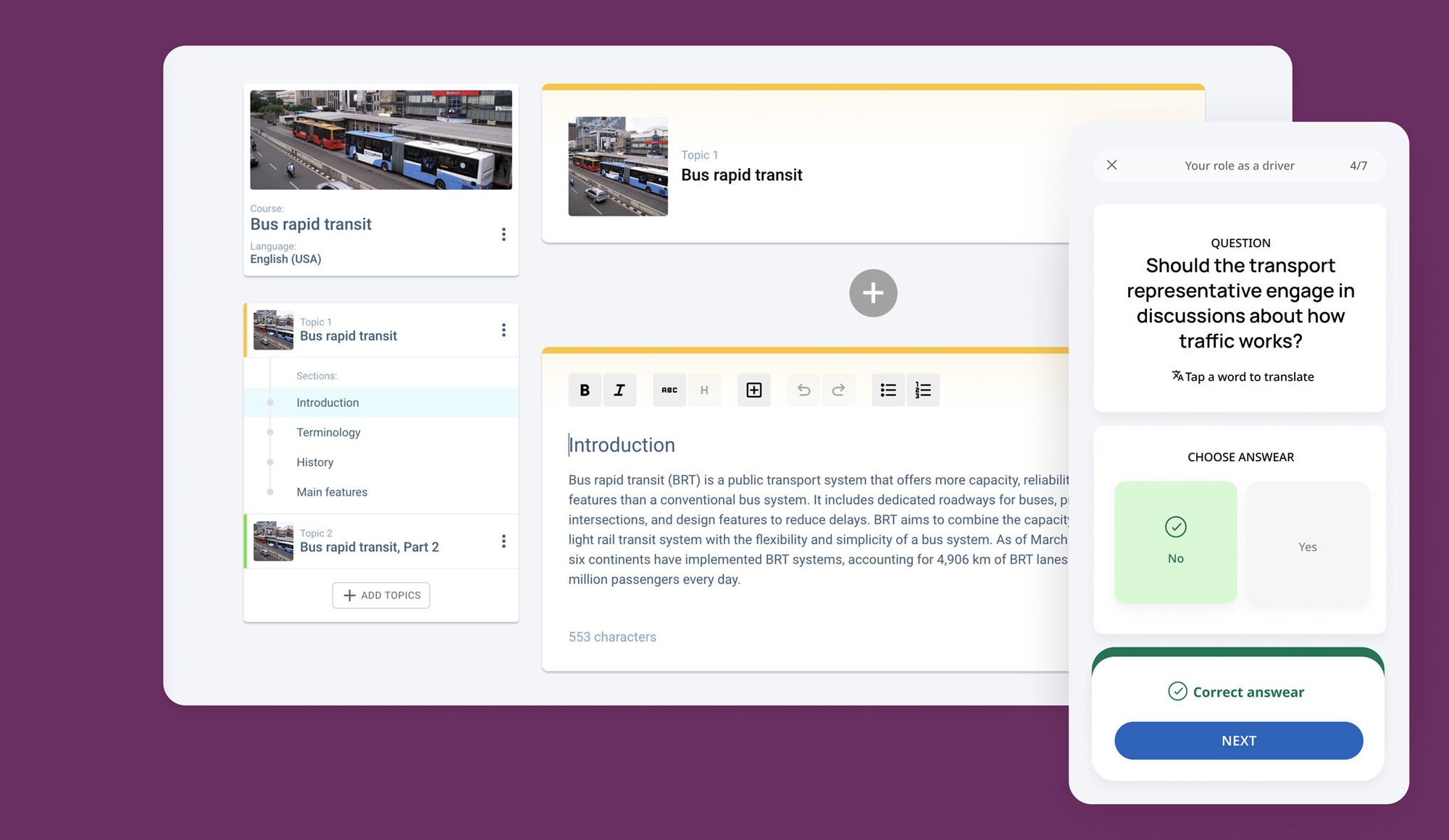Imagine walking into your workplace daily and feeling a deep connection, a sense of belonging that excites you to start your day. This feeling is not just a fantasy but a reality many successful companies have mastered.
Fostering a sense of belonging at work cannot be overstated. Employees who feel valued and included are more engaged, motivated, and willing to go above and beyond. In this article, we will explore the impact of a strong sense of belonging on employee engagement and delve into nine practical strategies you can implement to cultivate a sense of belonging in your company.
Why should you create sense of belonging at work?
Creating a sense of belonging at work goes beyond simply having a diverse workforce. It involves fostering an inclusive culture where individuals feel accepted, respected, and valued for their unique contributions. By recognising the importance of cultivating this sense of belonging, you can lay the foundation for a positive work environment that allows your employees to thrive.
Employees who feel they belong are likelier to be engaged and motivated. They feel a sense of loyalty towards the organisation and are willing to go the extra mile to contribute to its success. This sense of belonging also leads to increased collaboration and teamwork, as individuals feel comfortable sharing their ideas and perspectives without fear of judgment or exclusion.
Understanding the importance of a sense of belonging at work
A sense of belonging is crucial for individual employees and a company's overall success. When employees have a sense of belonging in the workplace, they are likelier to stay with the organisation, contribute their best work, and collaborate effectively with their colleagues. This sense of belonging goes beyond just feeling like a part of the team; it encompasses feeling valued, respected, and included in the company's vision and goals.
On the other hand, individuals feel excluded or disconnected, and their job satisfaction decreases, leading to decreased productivity, higher turnover rates, and a negative impact on the company's bottom line. Employees who do not feel a sense of belonging may become disengaged, resulting in a lack of motivation and a decline in their overall performance.
Companies prioritising creating a sense of belonging benefit from higher employee engagement and retention rates and foster a vibrant and innovative workplace culture. This culture of inclusivity and collaboration can lead to increased creativity, problem-solving, and overall organisational effectiveness.
Creating a sense of belonging requires intentional efforts from senior leaders and employees. Leaders can promote inclusivity by fostering an environment of trust, respect, and open communication. They can encourage team-building activities, provide opportunities for employees to voice their opinions and ideas, and ensure that everyone feels valued and appreciated.
Employees also play a crucial role in the organisational culture and creating a sense of belonging. They can actively participate in team activities, support and uplift their colleagues and embrace diversity and inclusion. By fostering a culture of belonging, employees can contribute to a positive work environment where everyone feels accepted and valued.
Recognising the impact of a strong sense of belonging on employee engagement
Employee engagement is a vital factor in driving organisational success. When employees feel connected to their work and the company, they are more engaged, productive, and motivated to do their best. A strong sense of belonging plays a crucial role in cultivating this engagement.
When employees feel a sense of belonging, they are more likely to feel emotionally invested in their work and the company's success. They are also more willing to collaborate, share ideas, and contribute to the growth and development of businesses to benefit the organisation as a whole.
One of the key benefits of a strong sense of workplace belonging is increased employee satisfaction. When employees feel like they belong, they are happier and more satisfied with their overall work experience. This satisfaction translates into higher levels of engagement, as employees are more likely to go above and beyond to contribute to the organisation's goals.
In addition to satisfaction, a strong sense of belonging fosters a positive work environment. When employees feel connected to their colleagues and the organisation, they are more likely to support and uplift one another. This creates a culture of teamwork and collaboration, where individuals feel comfortable reaching out for help and offering assistance to others.
Furthermore, a strong sense of belonging can significantly impact employee retention. Employees who feel part of a supportive and inclusive work environment are less likely to seek opportunities elsewhere. They are more likely to stay with the company long-term, reducing turnover and the associated costs of hiring and training new employees.
It is important for organisations to actively foster a sense of belonging among their employees. This can be achieved through various initiatives, such as promoting diversity and inclusion, providing opportunities for team building and social interaction, and recognising and celebrating individual and team achievements. By investing in creating a strong sense of belonging, organisations can unlock the full potential of their employees and drive sustainable business success.
9 strategies to cultivate a sense of belonging at work
Creating a sense of belonging within an organisation is crucial for fostering a positive and inclusive work environment. It enhances the employee experience, satisfaction and engagement and promotes diversity and innovation. In this section, we will explore nine strategies that can help cultivate a sense of belonging among employees.
1. Creating an inclusive culture
An inclusive company culture starts from the top down. Leaders must demonstrate a commitment to diversity and inclusion and ensure that everyone in the organisation feels accepted and valued. Encourage open dialogue, provide diversity training, and challenge biases to create an environment where differences are celebrated.
Additionally, companies can establish affinity groups or employee resource groups where individuals with similar backgrounds or interests can connect and support each other. These groups can provide a sense of community and belonging, allowing employees to feel understood and appreciated for their unique experiences.
2. Effective communication as a foundation
Clear and transparent communication is essential for fostering a sense of belonging. Ensure communication channels are open and information is shared consistently with all employees. Regular team meetings, town halls, and open forums allow individuals to voice their thoughts, concerns, and ideas.
Managers and organisations should also communicate empathetically and actively listen to their team members, making each individual feel heard and valued. This creates a safe space for employees to express themselves and fosters a sense of belonging by acknowledging their contributions and perspectives.
3. Building strong relationships through teamwork
Encourage collaboration and teamwork by creating opportunities for employees to collaborate on projects, cross-functional teams, and problem-solving initiatives. Team-building activities, such as retreats or social events, can also help foster a sense of camaraderie and belonging among colleagues.
Recognise and celebrate the entire team's achievements to reinforce the importance of working together and building strong organisational relationships. Employees will feel a stronger sense of belonging and connection to their colleagues by fostering a sense of unity and shared purposes.
4. Growth opportunities and professional development
Investing in employees' professional growth enhances their skills and knowledge and demonstrates that the company is invested in their long-term success. Provide opportunities for learning and development, whether through training programs, mentoring, or educational resources.
Supporting employees' career aspirations and offering clear paths for advancement can further strengthen their sense of belonging and loyalty to the company. When employees see their growth is valued and supported, they are likelier to feel a sense of belonging and commitment to the organisation.
5. Recognition and valuation of employee contributions
Recognising and appreciating employees' contributions is vital in cultivating a sense of belonging. Regularly acknowledge and celebrate individual and team achievements, both publicly and privately. Implement recognition programs, such as employee of the month awards or peer-to-peer recognition platforms, to ensure employees feel valued and appreciated for their hard work.
By highlighting each employee's strengths and contributions, you create an environment where individuals feel seen and recognised for their efforts. This fosters a sense of belonging among engaged employees by affirming their organisational values.
6. Promoting work-life balance for well-being
Strive to create a work environment supporting employees' well-being and personal lives and promoting work-life balance. Offer flexibility in work schedules, provide wellness programs, and encourage time off for self-care and personal commitments.
Showcasing a genuine concern for employees' well-being sends a powerful message that their happiness and fulfilment matter to the company. When employees feel supported in achieving a healthy work-life balance, they are likelier to feel a sense of belonging and loyalty to the organisation.
7. Employee engagement and empowerment
Engage your employees by empowering them to make decisions, contribute ideas, and take ownership of their work. Provide autonomy, delegate responsibilities, and involve employees in decision-making processes directly impacting their work.
When employees feel empowered, they are more likely to be invested in their roles, take pride in their work, and develop a stronger sense of belonging. You create a culture of inclusivity and collaboration by giving employees a voice and involving them in the decision-making process.
8. Conflict resolution and harmonious work environment
Addressing conflicts swiftly and respectfully is crucial for maintaining a harmonious work environment. Encourage open and honest communication when conflicts arise and provide resources, such as conflict resolution training or mediation services, to help employees navigate and resolve disagreements.
Employees will feel safe and supported by fostering a respectful culture and promoting fair treatment. This creates an environment where individuals can express themselves freely, fostering meaningful relationships and a sense of belonging and trust.
9. Continuous evaluation for a dynamic workplace
Regularly evaluate and assess the effectiveness of your strategies for cultivating a sense of belonging. Gather employee feedback through surveys, focus groups, or one-on-one discussions to understand what is working and identify areas for improvement.
Adapt and refine your approaches to meet the evolving needs of your workforce, ensuring that your efforts to encourage employees to foster a sense of belonging remain relevant and impactful. You are committed to creating an inclusive and supportive work environment by continuously evaluating and improving your strategies.
Summary
Fostering a sense of belonging within your organisation is not just beneficial; it's essential for cultivating a workplace where employees feel valued, engaged, and motivated. As we've explored the nine strategies to enhance this sense of belonging, it's clear that intentional actions and commitment are key to building a positive and inclusive work environment.
Integrating innovative tools like Lingio can make a significant difference to support these efforts further. Lingio's platform offers unique solutions tailored to enrich the learning and development experience, making implementing strategies that promote inclusivity and belonging easier. By leveraging such tools, you can create more engaging and impactful training programs that resonate with your employees, ensuring they feel a true sense of belonging and connection to your organisation. Embrace these strategies and the power of Lingio to transform your workplace into a community where everyone feels welcome and valued.
Frequently Asked Questions (FAQs)
1. Why is a sense of belonging important at work?
A sense of belonging is important because it fosters employee engagement, satisfaction, and productivity. It creates a positive work environment where individuals feel valued, included, and motivated to contribute their best. Employees who feel they belong are likelier to form strong connections with their colleagues, leading to increased collaboration and teamwork. This sense of belonging also helps to build trust among team members, as they feel comfortable sharing ideas and opinions without fear of judgment or rejection.
2. How can I promote a sense of belonging in my company?
You can promote a sense of belonging by creating an inclusive culture, encouraging effective communication, fostering strong relationships through teamwork, providing growth opportunities, recognising employee contributions, supporting work-life balance, empowering employees, resolving conflicts, and continuously evaluating your strategies.
3. What are the benefits of a strong sense of belonging?
A strong sense of belonging benefits individual employees and the organisation. It leads to higher engagement, increased productivity, improved retention rates, and a more innovative and collaborative work culture.When employees feel a strong sense of belonging, they are more engaged in their work. They feel a sense of purpose and connection to the organisation's mission, which motivates them to go above and beyond in their roles. This increased engagement translates into higher productivity and better overall performance.
A strong sense of belonging also contributes to improved retention rates. When employees feel valued and connected to their workplace, they are more likely to stay with the company for the long term. This reduces turnover costs and ensures a stable and experienced workforce.


Table of contents
Intro
Why should you create sense of belonging at work?
Understanding the importance of a sense of belonging at work
Recognising the impact of a strong sense of belonging on employee engagement
9 strategies to cultivate a sense of belonging at work
Summary
Frequently Asked Questions (FAQs)


